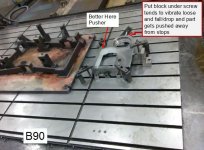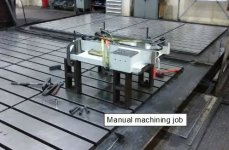georgee1
Aluminum
- Joined
- May 19, 2014
- Location
- chicago suburb, il, usa
I'd like to become a machinist in the trade. But right now I'm just a CNC operator. I understand the title "machinist" has been sort of watered down. Often times I'm looking through the job pages and notice they want to hire a machinist but really just want someone to operate.So with this thread I was looking for more guidance or direction. I want to know what it means to be a CNC machinist that people on this forum can respect. What should I look to learn and be capable of doing? Do I have to have completed an apprenticeship?
I'm unsure what to do. I have 3 years of operating CNC experience. All 3 years were with different machines. I'm ready to leave my current position on 2nd shift because there isn't much learning to gain. It's just 2 guys and I'm the most experienced. I learn what I can on the overlap period we have with first shift. I spoke with the programmer on our swiss department and he reinforced my position and indirectly suggested to find a place that I can learn under more knowledgeable workers for more than just 2 hours a day.
So after deciding to leave, I question what my next position should entail to be on the path as a machinist. Should I look for a 4 year apprenticeship? Or can I become this without the apprenticeship. Or should I stack on what I already know, seek an operating job and get promoted into set-up, while taking CNC programming courses or any relevant classes for that matter.(i.e solid works/cad/mastercam)
Thanks for any responses !!








 Our duty is pretty well to do it fast, cheap and accurate, and then sell any two of those attributes as a completed job.
Our duty is pretty well to do it fast, cheap and accurate, and then sell any two of those attributes as a completed job.